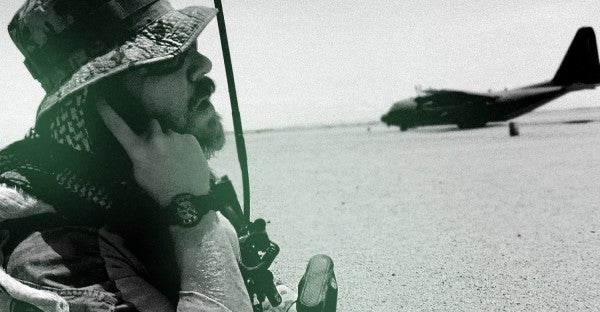UNSUNG HEROES: The Airman Who Gave His Life To Warn Others Of Insider Attack
On Aug. 26, 2015, Capt. Matthew Roland of the 23rd Special Tactics Squadron was leading a special operations forces convoy...

On Aug. 26, 2015, Capt. Matthew Roland of the 23rd Special Tactics Squadron was leading a special operations forces convoy back to Camp Antonik in Helmand province, Afghanistan, when the bus he was driving came to a stop 20 meters outside of an Afghan-run checkpoint. According to a report by Air Force Times, the group’s interpreter got out of the vehicle and conversed with the two guards who were wearing Afghan security forces uniforms.
RELATED: UNSUNG HEROES: The Airman Who Gave His Life During The Initial Invasion Of Afghanistan »
As the guards gave the convoy permission to cross the checkpoint, one of them walked toward a bunker secured with a belt-fed M240B machine gun. The second guard approached Roland’s driver-side window.
When the second guard was within five feet of the vehicle, he began to raise his M4 rifle to his shoulder, setting Roland immediately into action — he knew that his team was about to take fire.
He radioed to his fellow troops, shouting, “Insider attack! Insider attack!” as he slammed his vehicle into reverse. Roland was shot and killed instantly, along with combat controller Staff Sgt. Forrest Sibley.
According to Air Force Times, Roland, who was 27, could have protected himself by ducking behind the dashboard or reaching for his own weapon, but instead, he saved his fellow troops by moving them out of the kill zone and buying them time to react. Because of his heroic actions, NATO service members were able to return fire and kill the shooters.
Roland was honored posthumously with the Silver Star. The medal was presented to his family members on June 1, 2015, to his family members. His father, retired Air Force Col. Mark Roland, said in a release, “We are honored that his legacy will be remembered with this medal, but Matt's sacrifice will always be a reminder of freedom's costs.”
Roland, who grew up in Lexington, Kentucky, graduated from the Air Force Academy in 2010. He completed a rigorous special tactics training program in 2012, and deployed three times to locations around the world during his five years of service.
On the day that Roland was killed, he was two weeks away from finishing his third deployment, a six-month tour in Afghanistan.
“Human instinct is to take cover. But that’s not what Capt. Roland did that day,” Col. Matthew Wolfe Davidson, 24th Special Operations Wing commander, said. “Those decisions are a reflection of his character, and we want to emulate heroes like this.”